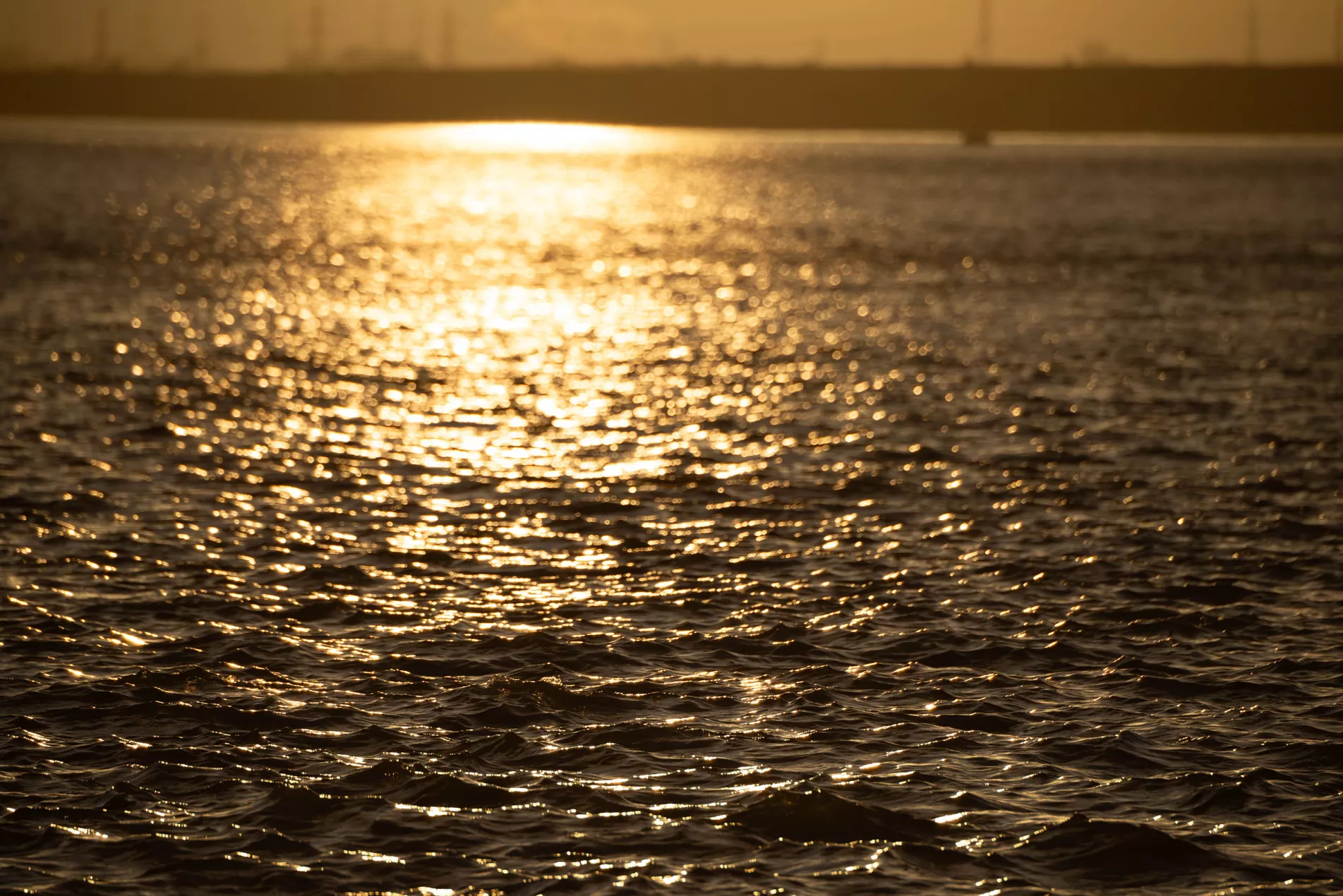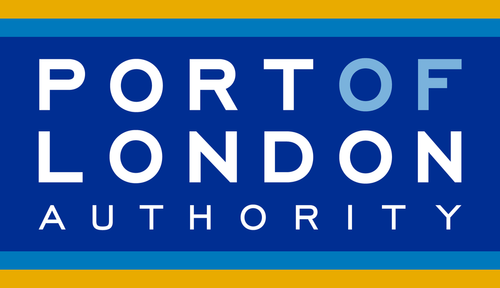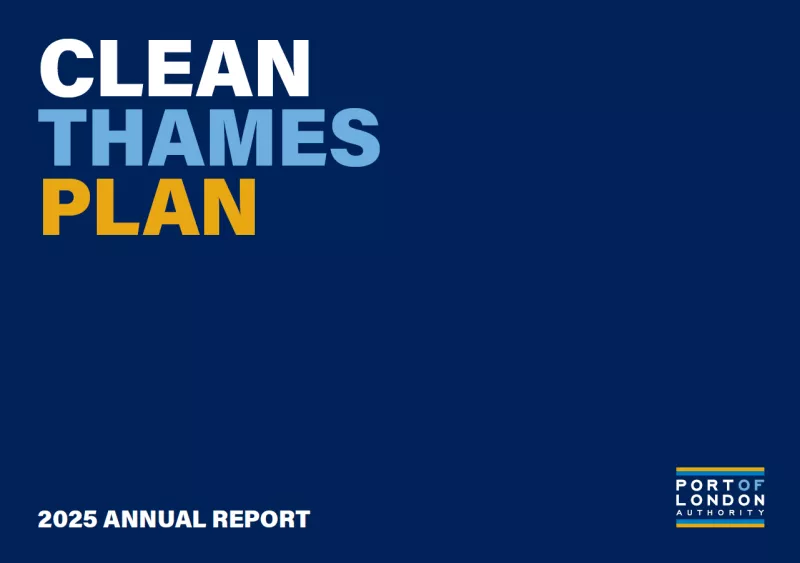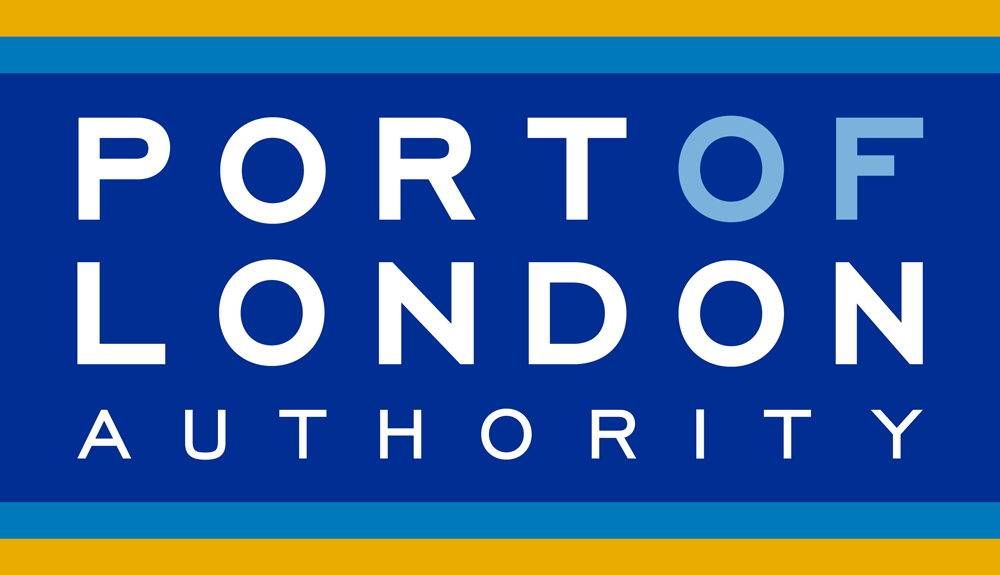Live Tides
NOTICES TO MARINERS
Charts & Surveys
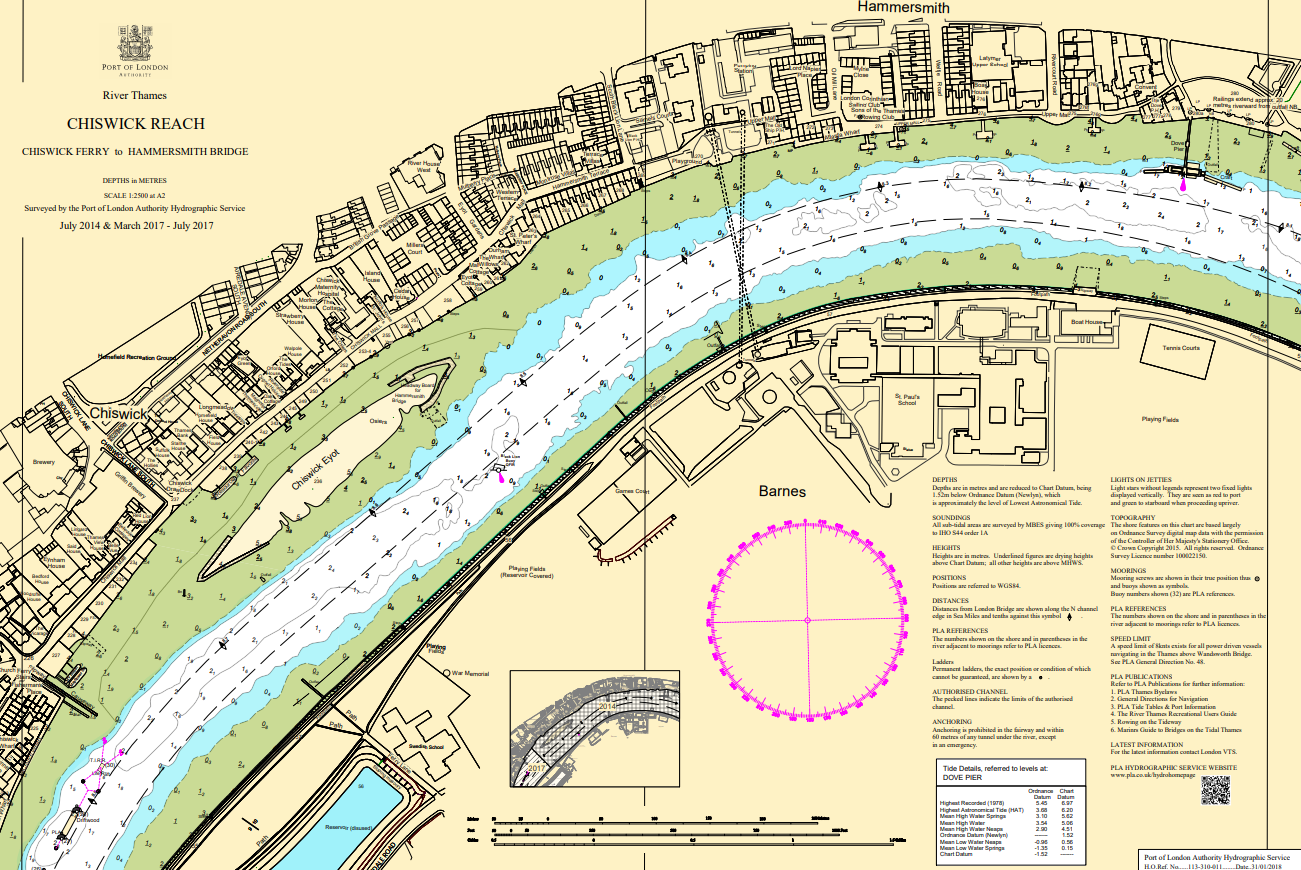
Incident reporting
Life-threatening emergencies on the river:
Call 999 and ask for the Coastguard
For near miss, safety observations and incident reporting click below
Cable Statement
Overview
The river Thames is home to the Port of London which is the country’s biggest port handling over 50 million tonnes of freight each year.
The Port plays an essential role in the UK and global economies and in the sustainable transport of cargo and people. It is critical therefore that the existing and future capacity and operation of the Port are safeguarded and that proposed developments are appropriately designed, implemented, operated, maintained and decommissioned to ensure that constraints are not placed on the existing or future functioning of the Port.
The Port of London Authority (PLA) is the statutory harbour authority for the tidal Thames. Its consent is required for all works within its area of jurisdiction. The PLA’s functions include the promotion of the use of the river for freight and passengers as an important international gateway and sustainable transport corridor.
The PLA recognises the need for energy projects such as windfarms and interconnectors. A number of these projects are currently proposed in the Thames Estuary reflecting available onshore connection points and the need to transport electricity within the UK and between the UK and Europe. The PLA have the primary responsibility for maintaining safe access and managing the safety of vessels, the general public and all users of the tidal River Thames.
The PLA will work proactively with developers and stakeholders including the ports and terminals within the Port of London to enable these projects to be delivered wherever possible, whilst at all times ensuring navigational safety is maintained; ensuring that the Port of London can continue to grow and remain the largest port in the Country; and supporting the Port’s transition to net zero.
Anyone considering placing cables within the Thames Estuary either within or outside its area of jurisdiction should contact the PLA at the earliest opportunity to discuss the PLA’s requirements. This cable statement sets out the broad issues that must be considered by developers and the documents and mitigation that the PLA would expect to see as a minimum within applications.
Cable Route
The PLA will provide advice on the route for the proposed cable and in particular any areas that must be avoided. This will include navigation channels and pilot boarding areas, where depths for current and future vessels need to be protected and any temporary disruption to navigation minimised.
Projects should avoid placing cables within navigation channels. If cables must cross a navigation channel, the shortest route should be taken i.e. at 90 degrees to the channel.
Cables must not be placed in a navigation channel following the route of the channel.
If a cable is to be located outside of a navigation channel, the PLA will provide the distance the cable must be placed as a minimum from the channel, taking into account the potential for the channel to migrate and the need for the channel to be widened in the future.
Along the route of the cable, the need for a planned cable field joint in or close to the navigation channel must be avoided.
Cable depth
Along the route of the cable, the PLA will provide details on the riverbed level(s) that will need to be maintained over the lifetime of the project. These level(s) will be provided with reference to Chart Datum (equating roughly to the level of lowest astronomical tide) and might be different to the existing riverbed levels reflecting:
Current and future vessel sizes
Existing and proposed dredging
Changes to the bed of the river (migration of the channel)
The developer will need to carry out an assessment to determine the distance that any cables need to be placed under the given riverbed level(s). The cables will need to be designed, installed, operated and maintained so as not to preclude or impede the provided riverbed levels(s). For any Development Consent Order (DCO) projects, the PLA would expect a Requirement in the DCO linked to a Certified Plan that secures the required riverbed level(s). This Requirement should also be included in any Deemed Marine Licence.
A remediation clause must clearly set out the measures that will be taken if, during installation of maintenance of the cable, the cable is not installed at the correct depth. This should include attempts at re-burial and if not successful, removal of the cable. The PLA also expects to be indemnified by the developer for any impacts of the cable.
Cable Crossings and Cable Protection
Cable crossings and cable protection both have the potential to reduce navigable depths and whilst the Maritime and Coastguard Agency generally accept reductions in navigable depth of up to 5% Chart Datum, where the PLA has provided details on the riverbed level(s) that will need to be maintained over the lifetime of the project, the PLA will not accept any reductions in water depth in these location(s).
When designing a project, other emerging projects should be considered and the likely location(s) of any cable crossing(s). Projects should be designed not to prejudice other emerging projects from coming forward for example, it might be necessary for a project to install its cable at a greater distance under the riverbed to enable an emerging project to cross it and still maintain the required riverbed level.
Cable crossings and cable protection should be located outside of navigation channels and away from any pilot boarding stations. Where a cable becomes exposed or depth of burial is significantly reduced, attempts must be made to re-bury the cable to the required depth.
Pre Construction and Construction Activities
Pre-construction and construction activities have the potential to impact on shipping and navigation.
The PLA would expect to be consulted and for its comments to be taken into account when any pre-construction surveys or monitoring is proposed. Any surveys or monitoring undertaken within the PLA’s area of jurisdiction will require its statutory consent under the Port of London Act 1968 (as amended).
To mitigate and manage pre-construction and construction activities key documents should be produced. These documents must be clear in their scope, applying to both installation and maintenance. Final versions of documents must be produced in strict accordance with any outline versions of the documents. The documents should be clear on the procedure should any updates be required to the documents during the lifetime of the project.
Examples of these documents can be provided on request.
Navigation and Installation Plan (NIP) This document is a mechanism for managing working, including concurrent working within any areas of navigational interest. Following, consultation with the PLA the document must set out the ‘area of interest’ and provide details on the activities and associated restricted in ability to manoeuvre (RAM) vessels used for those activities. It must set out which concurrent activities are possible and which are not possible and must give indicative details including duration, spatial extent, speed when undertaking activity, whether it is a continuous or discontinuous activity etc. Planned protocols and actions which will be implemented must also be provided.
Cable Specification and Installation Plan (CSIP) This document must set out the activities that need to take place in order to install and maintain the cable and the commitments relevant to those activities. It should include as a minimum, details and commitments relating to pre-construction surveys, riverbed preparation, unexploded ordinance (UXO) clearance, boulder clearance, archaeology, pre lay works (e.g pre-lay grapnel run, sandwave clearance), sediment disposal, cable installation, cable jointing, cable protection, cable crossings, cable burial and monitoring, including any post-construction surveys.
The document must meet the requirements set out above in relation to the cable (route, depth, crossings, protection etc) and commit to not relocating to or within navigation channels any boulders, archaeological finds or UXO and to no wet storage within navigation channels.
Sediment Disposal Management Plan (SDMP) This document sets out the proposed plan and management for the disposal of riverbed and other relevant material (e.g sub-bottom geological material) that might be generated during the construction and maintenance of the project. This document must clearly set out the approach to disposal at any navigation channels and in proximity to boarding and landing areas and must clearly commit to not placing material where deeper cable burial is required (i.e. where the PLA has provided a riverbed level that must be safeguarded which is deeper than existing bed level) and in proximity to pilotage boarding areas.
If produced pursuant to a DCO, the PLA would expect to secure approval of the final documents in its protective provisions. Otherwise they will form a condition on the RWL.
Decommissioning
The PLA understand that energy projects can have long life spans and that it may also be possible to extend a projects expected life span. It may therefore not be possible when designing a project to make clear commitments relating to the projects de-commissioning. However, there must be a clear mechanism for securing a decommissioning plan with input from relevant stakeholders at the appropriate time.
Protective Provisions
For DCO applications, regardless of whether a project is located within or outside of the PLA’s area of jurisdiction, the PLA expects protective provisions to be provided for the PLA. A copy of model protective provisions can be provided on request.
Environmental Considerations
For all proposals, the potential for significant environmental effects must be considered.
Where there is the potential for the installation and/or operation of the cable to adversely affect a European designated site (Special Area of Conservation, Special Protection Area and/or Ramsar), a Habitats Regulations Assessment is required under the Conservation of Habitats & Species Regulations 2017 (as amended). This should follow Government guidance. Sufficient information should be provided by the applicant to allow the Competent Authority to carry out the assessment, a shadow HRA can be submitted for approval and adoption by the Competent Authority.
Cabling projects may require an Environmental Impact Assessment, under either the Town and Country Planning (Environmental Impact Assessment) Regulations 2017, the Marine Works (Environmental Impact Assessment) Regulations 2007, or the Infrastructure Planning (Environmental Impact Assessment) Regulations 2017. Projects should be screened to determine whether an EIA is required, and a screening report submitted to the appropriate regulator. If an EIA is deemed to be required, this should follow the relevant process and guidance and an Environmental Statement prepared assessing the environmental impacts and identifying avoidance, mitigation and/or compensation measures.
A Water Framework Directive (WFD) Assessment should be carried out in accordance with the Water Environment (Water Framework Directive) (England and Wales) Regulations 2017 and following Government guidance. This should assess the potential effects on the relevant waterbody.
First mass wet wipe removal from a UK river launched to clean London’s ‘Wet Wipe Island’
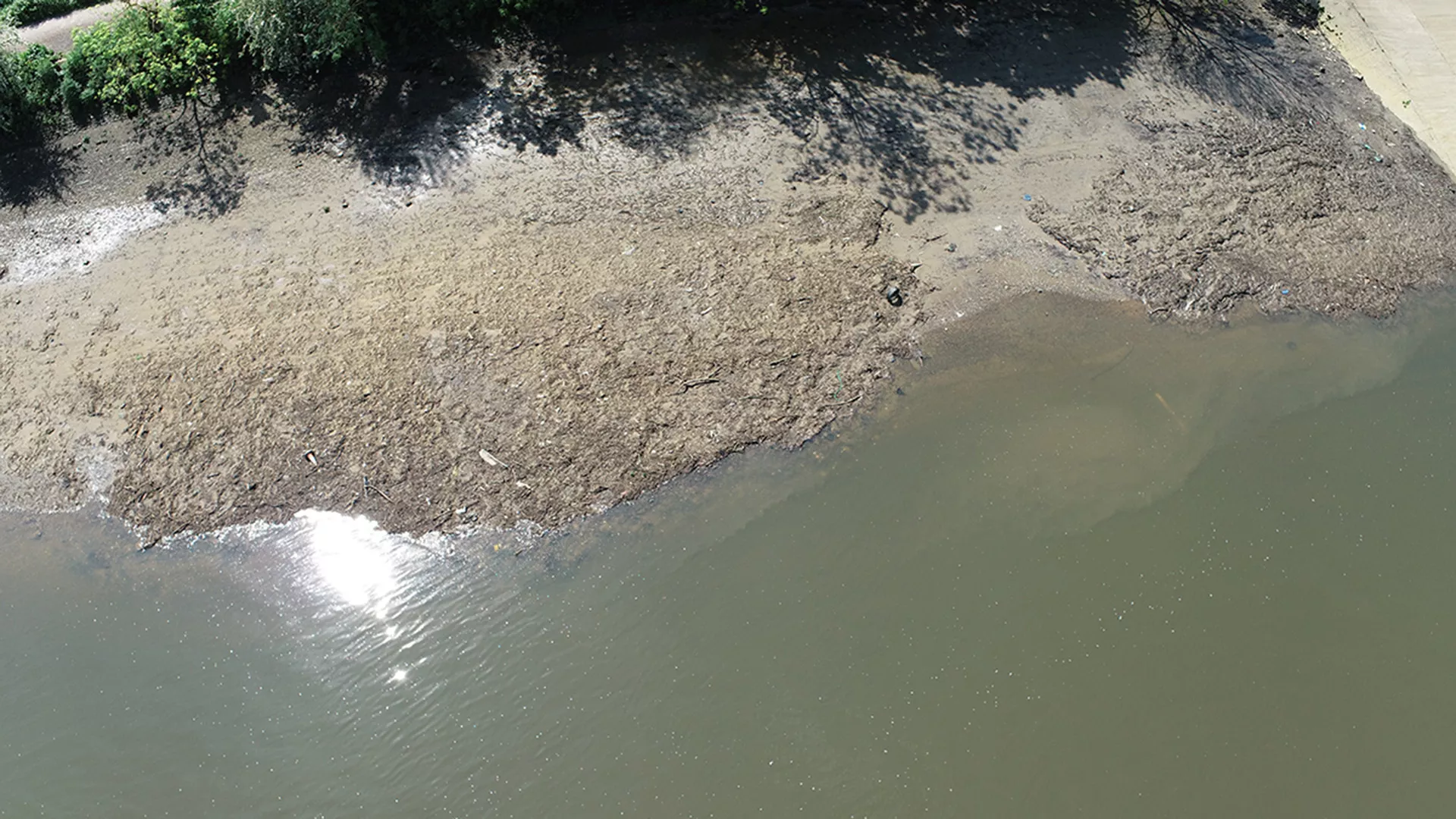
- 180 tonnes of congealed wet wipes – the equivalent to the weight of 15 double decker London buses – are being removed from the River Thames by the Port of London Authority, with support from Thames Water
- The month-long operation is the country’s first mass wet wipe removal project of its kind
- Environmental charity Thames21 and its volunteers have already collected more than 140,000 wet wipes along the Thames and campaigned to clean up the site
Work has started on the mass excavation of London’s Wet Wipe Island in a first-of-its-kind river clean-up project to further improve the quality of the River Thames.
Led and co-ordinated by the Port of London Authority with collaboration from Thames Water, the operation is removing an estimated 180 tonnes of congealed wet wipes that has formed the island along a 250-metre stretch of the tidal Thames near Hammersmith Bridge. It is expected to take up to a month to complete.
The island, which is about the size of two tennis courts, has changed the course of the river and potentially harmed the aquatic wildlife and ecology in the area.
To date, efforts to clean wet wipes from this unique natural environment have relied on people removing them by hand. Inspired by the work of volunteers at Thames 21, the PLA decided to take a lead in co-ordinating larger scale action to remove this unsightly and harmful mess.
The UK’s biggest port, which is responsible for protecting and improving the tidal Thames, commissioned an independent ecological study of the site. This helped inform and develop an environmentally responsible plan to use a mechanical excavator to remove the wet wipes on a mass scale.
Thames21 and its volunteers have been monitoring the island since 2017. Their data and research have played a vital role in raising awareness of how wet wipes containing plastic can degrade the environment and harm wildlife. Their data has also influenced Government policy. It comes after the Government recently published draft legislation to ban wet wipes containing plastic.
Thames 21’s work, alongside expert insights from the PLA’s own hydrography and environmental teams, has proved invaluable in planning the mass removal project.
St Paul’s School, Barnes is supporting the clean-up and giving access to its grounds to allow the eight-tonne excavator to carefully remove the ‘island’ – which is 1m high in places – from the foreshore when the tide is low. The wet wipes and other pollutants will then be taken away in skips and responsibly disposed of.
This project is part of an ambition to improve river health in the Thames. The PLA’s Clean Thames Manifesto coordinates action across a number of stakeholders towards a clean, pollution free river with a healthy ecosystem by 2050.
Thames Water recently announced a further £1.8billion investment to improve river health across London, and last year connected its £4.6 billion Thames Tideway Tunnel to support the reduction of sewage discharges into the tidal Thames by 95%.
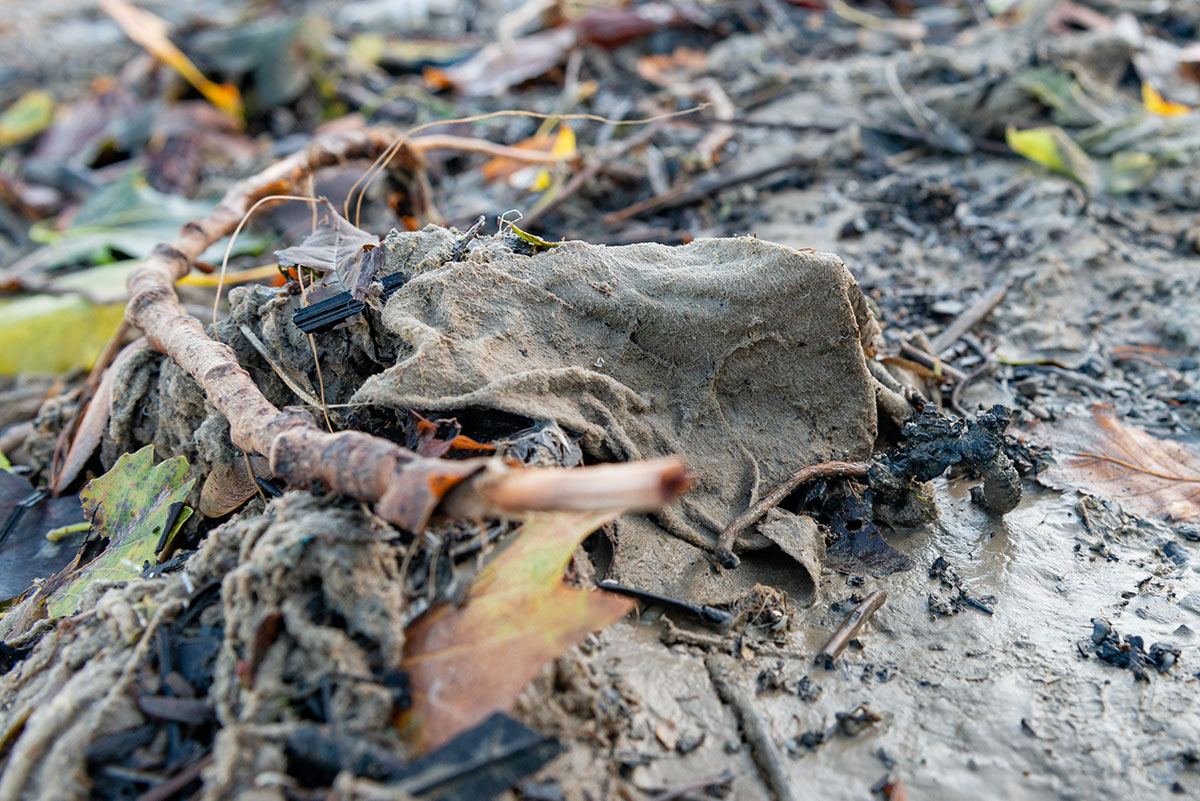
Port of London Authority’s Director of Sustainability, Grace Rawnsley, said:
“For too long, ‘Wet Wipe Island’ in Hammersmith has been a source of environmental harm and an embarrassment to the capital. Inspired by the work of volunteers at Thames 21, we decided to take a lead in co-ordinating action to remove this unsightly and harmful mess.
“This is the first time anyone has sought to execute a mass, mechanical removal of wet wipes in this way.
“We want a cleaner, healthier tidal Thames and will continue to work with all interested parties to secure that. And we will continue to bring innovation and investment to help the world’s greatest river thrive.”
Thames Water’s Head of Tideway Integration Group, John Sullivan, said:
“Our purpose is to deliver life's essential service, so our customers, communities and the environment can thrive. We are pleased to collaborate with the PLA and Thames21 to remove this mass of wet wipes. For us it is a visible reminder of the damage caused by putting the wrong things down the toilet because flushing something non-biodegradable like a wet wipe doesn’t just make it disappear.
“Blockages caused by wipes are a leading cause of pollution and we remove an estimated 3.8 billion wipes from our network each year.
“We all have a role to play in ensuring that people can enjoy our rivers. Over the next five years Thames Water is targeting a record £9.5 billion (in 2022/23 prices) of investment across our wastewater assets to meet the demands that come with population growth and climate change.”
Chris Coode, CEO at Thames21, said: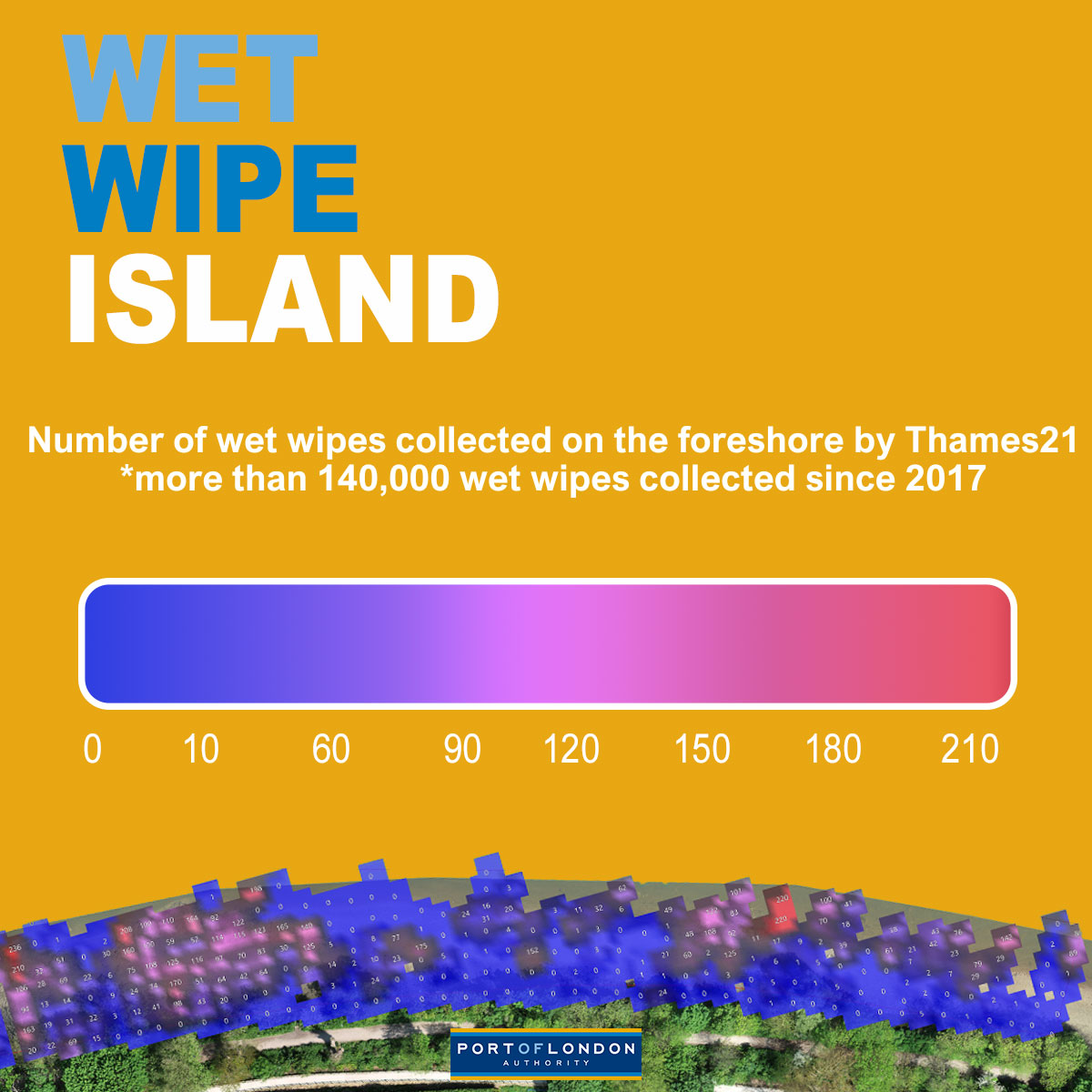
“Plastic wet wipes have no place in our rivers or natural environment, so it’s terrific news that action is being taken to remove wet wipe island in the Thames.
“This vital move is a crucial step towards protecting the health of the River Thames and its wildlife, as it will reduce the introduction of microplastics into the environment from this site.
“Thames21 and its dedicated volunteers have been building evidence for eight years. We want to give our volunteers a huge shout-out for their persistence. This has been a massive piece of work!
“Thames21 has been pushing for a ban on plastics in wet wipes. However, we would like to see more systemic change to tackle the issue of plastics entering the environment via wet wipes and other sanitary waste.
“We want producers to get serious about plastic-free alternatives to wet wipes. We ask water companies to increase their investment in screening to prevent wet wipes and other sanitary waste which contains plastic entering the environment. We’d also like to see a step-change in their investments in upgrading sewage infrastructure to prevent overflows. We’d like to remind people to bin their sanitary waste and wet wipes, not flush them down the toilet, so that they don’t enter our wastewater system.
“By working together, we can achieve great things for rivers, wildlife and people. Let’s do it!”
Fleur Anderson, MP for Putney, Southfields, Roehampton and Wandsworth Town, said:
“This is a huge moment – after years of campaigning, wet wipe island hopefully is no more! It’s so long overdue and very welcome. There was a national outcry at this monstrosity in the Thames – caused by plastic wet wipes, which cause massive damage to our environment and our sewer systems.
“The ban I’ve introduced will mean 3.8 billion wipes removed from the network every year. A win for our waters, sewers and environment!”
Related content
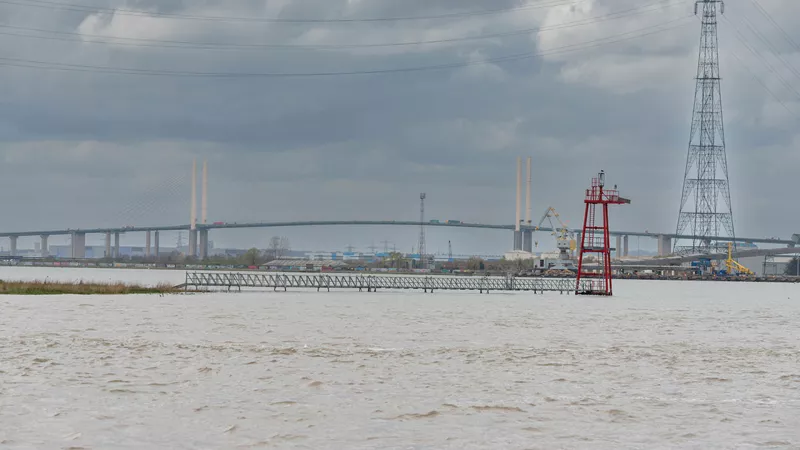
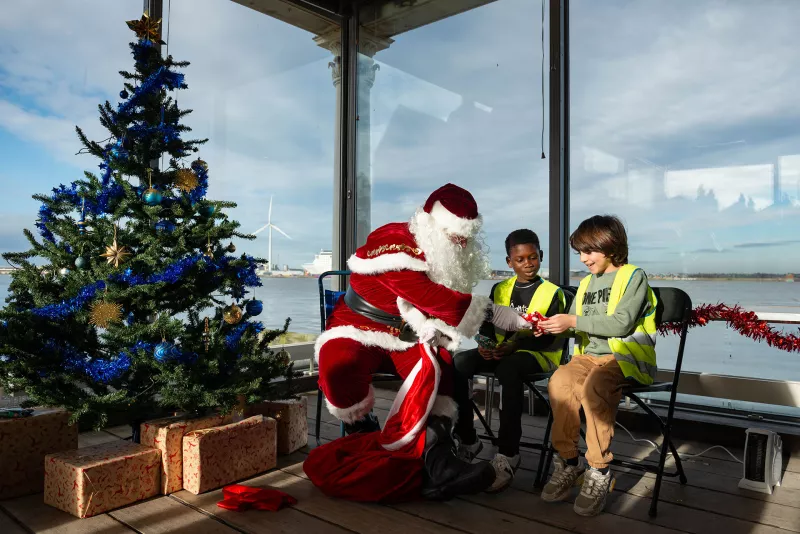
Location: London/Gravesend Remuneration: £28,971 per annum for a commitment of up to 24 days per...
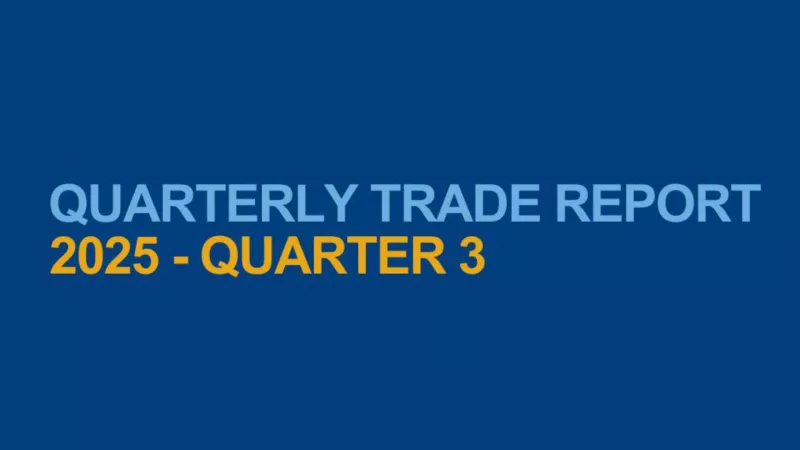
PLA's new Trainee Marine Pilots
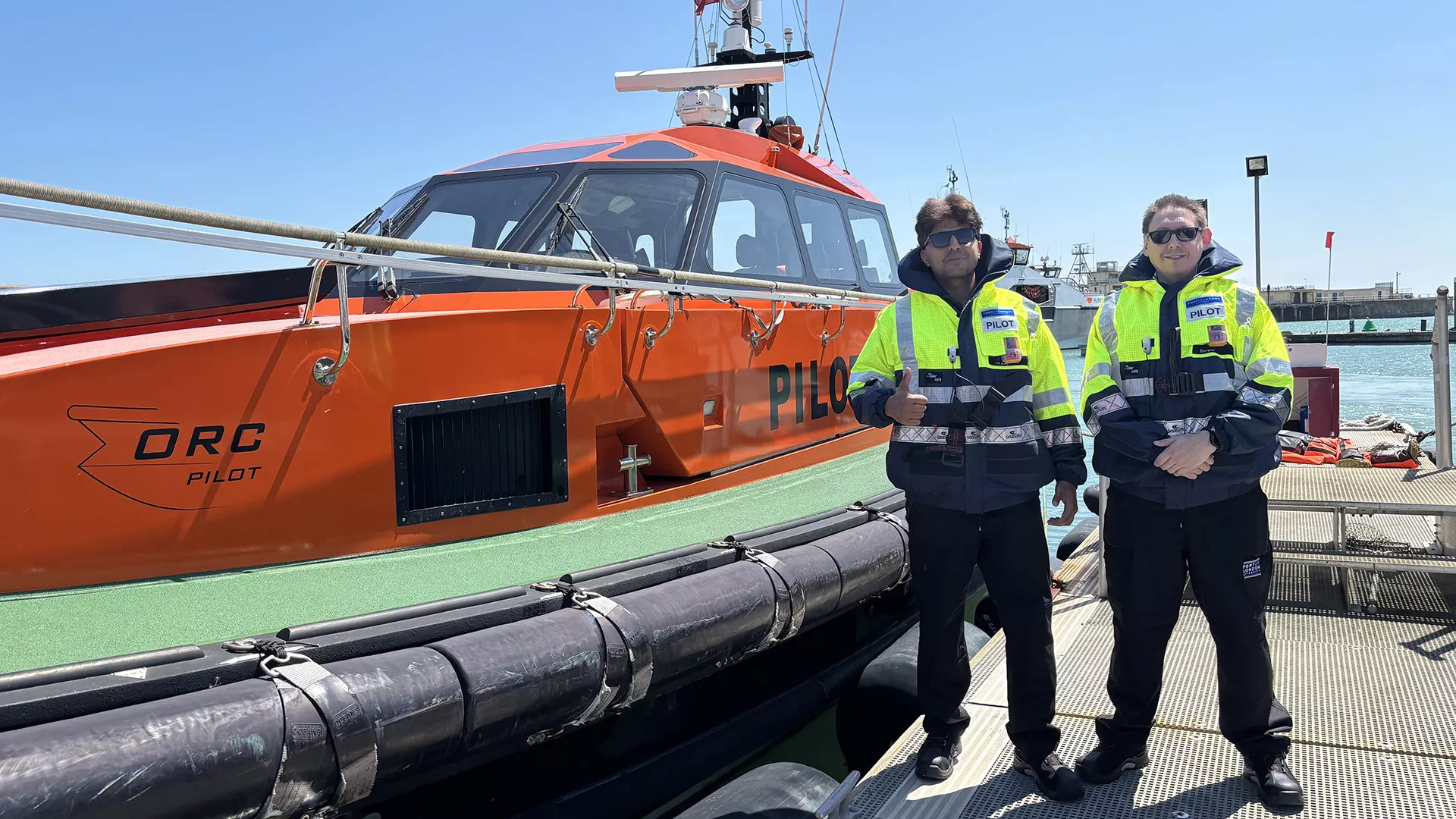
We’re thrilled to welcome Sathar Sulaiman and James Kitney to the PLA as they join us as Trainee Marine Pilots. Both bring extensive seafaring experience, strong leadership skills, and a shared passion for navigation and ship handling.
The River Thames is one of the most complex and challenging pilotage environments in the world, and we’re confident they will thrive in their new roles. We wish them every success as they begin this exciting new chapter - good luck with your training, and welcome to the team!
Sathar Sulaiman
Originally from India, Sathar began his maritime career as a Deck Cadet, gaining a strong operational foundation on bulk carriers and container vessels. He went on to serve as an Officer of the Watch (OOW) on crude oil, product, and Type 1 & 2 chemical tankers, later progressing to the role of Chief Officer.
He holds a Bachelor of Science (BSc) in Nautical Science and completed his professional maritime training at City of Glasgow College, achieving both his Mates and Master’s certification, culminating in a Master’s Certificate of Competency.
Sathar’s interest in pilotage developed during his years at sea, where he found pilotage operations to be the most fascinating and challenging part of any voyage, particularly in complex or busy waterways. His decision to join the PLA was inspired by the opportunity to work on the River Thames, one of the world’s most historic and demanding tidal rivers.
He is excited to transition from life at sea to a shore-based role as a Marine Pilot, where he can continue applying his maritime experience while learning from the PLA’s highly skilled team of pilots.
Outside of work, Sathar enjoys acting, singing, playing competitive cricket during the English season, and travelling to places with rich maritime heritage or natural beauty. He also loves long drives and exploring new destinations.
James Kitney
Originally from Dover, James began his career as a Deck Cadet with P&O in 2000. Over the years, he has gained extensive experience working on ro-pax ferries, tugs, and cruise ships, spending the past 13 years in RoRo freight, where he achieved the rank of Master in 2014.
For James, becoming a Marine Pilot was the natural next step after his time as Master, building on over 15 years of experience handling vessels. He is looking forward to the variety and challenges of piloting different ship types on a daily basis and contributing his expertise to the PLA.
Outside of his professional life, James is a 2nd dan in DNBK Iaido, a form of Japanese swordsmanship recognised by the Dai Nippon Butoku Kai (Japan’s oldest martial arts organisation). He also enjoys archery, playing the drums, and taking part in local charity work.
Related content


Location: London/Gravesend Remuneration: £28,971 per annum for a commitment of up to 24 days per...

UK-Led Maritime Hydrogen Highway charts course for cleaner ports and shipping
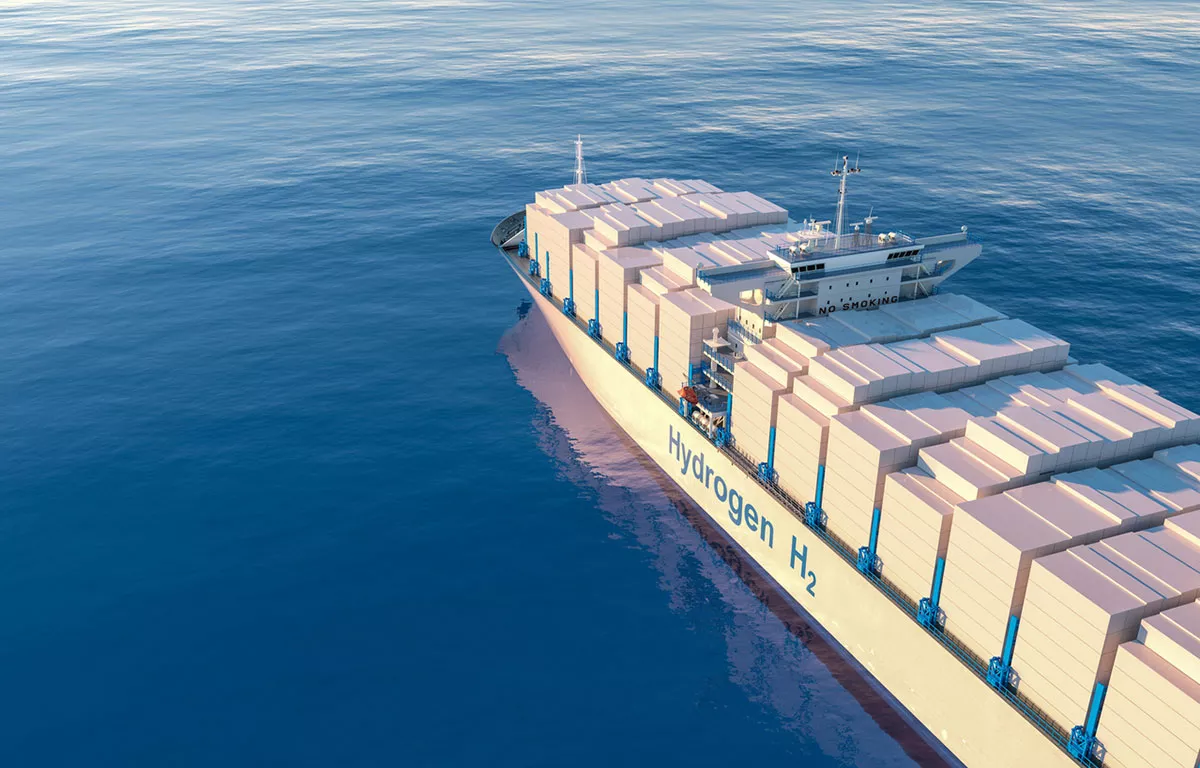
A consortium led by the UK’s largest port, the Port of London Authority (PLA), has concluded a three-year programme investigating the Maritime Hydrogen Highway, which proves clean hydrogen can power the maritime sector safely, affordably, and at scale.
Funded by Maritime Research and Innovation UK (MarRI-UK), supported by the Department for Transport (DfT), the £1.2 million project explored the entire hydrogen supply chain - from offshore production and shipping to safe port-side handling and refuelling - with the goal of accelerating the UK’s transition to Net Zero.
Reaching Net Zero by 2040 is part of the PLA’s long-term strategy, Thames Vision, and the transition to low and zero carbon fuels on the river is key to achieving this ambition.
As the PLA’s CEO, Robin Mortimer, says: “This programme is about taking a lead on maritime decarbonisation. From floating wind to autonomous hydrogen vessels, we’ve demonstrated that that there is a theoretically viable option for green hydrogen generation and transportation, using existing infrastructure. It also highlighted the essential requirements for a regulatory framework, investment, and collaboration to enable this energy transition, which is core to future decarbonisation.”
Key findings show that green hydrogen produced from UK-owned floating wind farms can be delivered by autonomous vessels to ports like London’s and used to power everything from port equipment and vessels to HGVs and local logistics fleets. What’s more, it can do so at nearly half the cost of other sources of hydrogen. The project found that this model:
- Cuts greenhouse gas emissions across maritime and land-based transport
- Reduces the need for pipeline infrastructure by using mobile container transport
- Produces hydrogen at £6–£7 per kilogram, compared to £14 via other sources
MarRI-UK's Director, Sarah-Louise Keegan, says:
“MarRI-UK is proud to have supported the Hydrogen Highway project, which has laid vital groundwork for decarbonising the UK’s maritime sector. By demonstrating how clean fuels and smart technologies can be integrated into port and shipping operations, it offers a clear path toward a low-carbon future. This forward-looking collaboration highlights the critical role of coordinated investment and innovation in meeting our climate commitments.”
The Hydrogen Highway was led by PLA with contributions from:
- OS Energy, University of Strathclyde, University of Kent, University of Birmingham, Newcastle Marine Services, and ORE Catapult
- the Health and Safety Executive (HSE), which advised on safety and regulation.
Together, they tackled seven interconnected work packages, from developing autonomous vessels and port integration frameworks, to mapping demand across the Thames and building economic models for UK-wide hydrogen rollout.
Robin Mortimer, the PLA’s CEO, concludes: “Hydrogen presents a huge opportunity for the UK’s port cities. This work shows how we can use our existing infrastructure and natural resources to deliver low-carbon energy exactly where it’s needed.
For the Port of London, it also supports our path to sustainable growth, supporting jobs, trade and innovation while cutting emissions on the river and beyond.”
While the technology is ready, the project also identified urgent regulatory and investment gaps. The PLA and partners are now calling for:
- A clear UK regulatory framework for hydrogen maritime operations
- Investment support for early-stage hydrogen port infrastructure
- Continued cross-sector collaboration to build a commercially viable hydrogen economy
Related content


Location: London/Gravesend Remuneration: £28,971 per annum for a commitment of up to 24 days per...

Don’t mess with the River Thames, warns new safety campaign
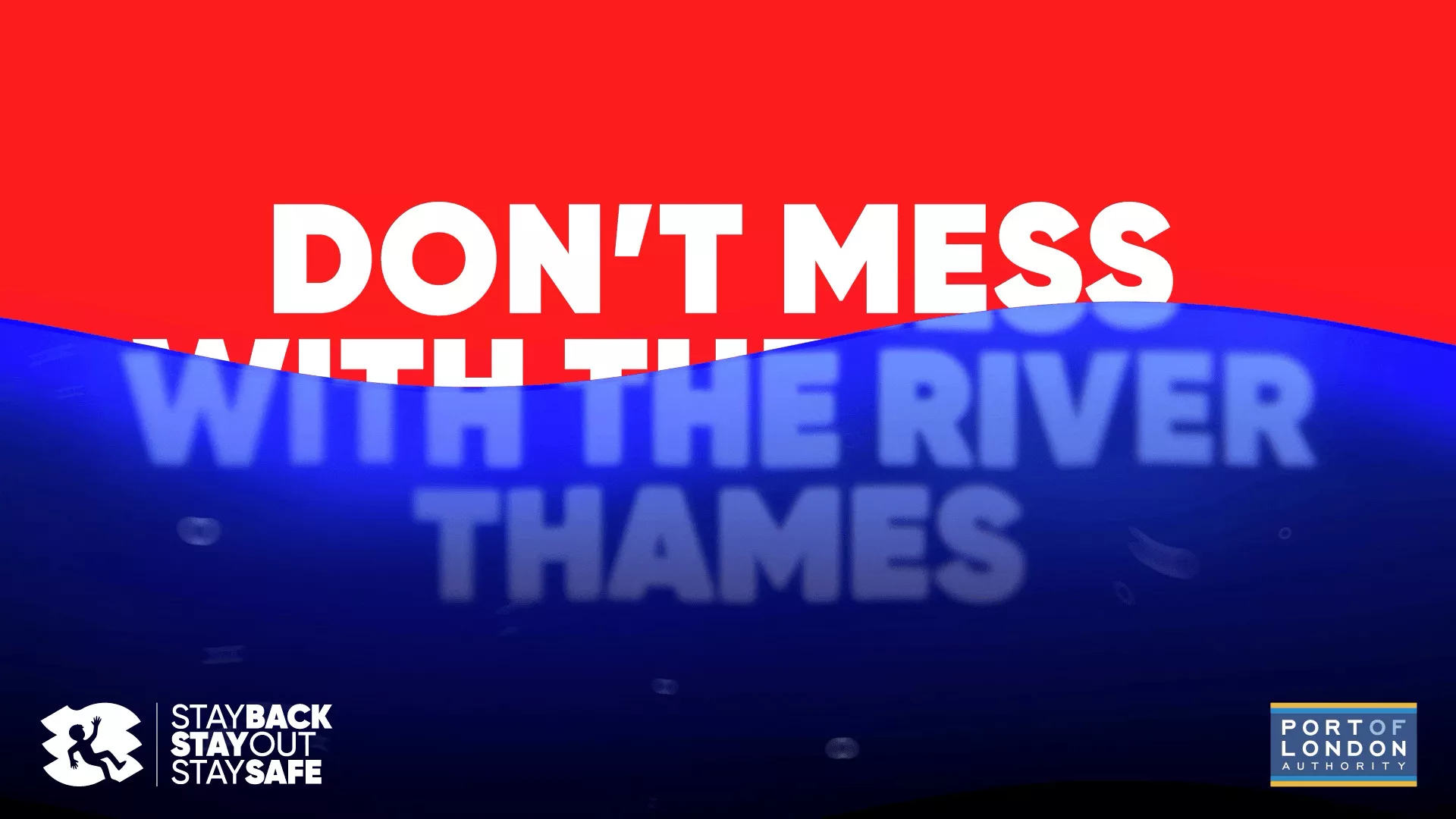
A powerful new safety film warning children and their parents about the dangers of the tidal River Thames - along the full stretch through central London and out to Essex and Kent - went live today, in time for the school holidays and World Drowning Prevention Day on 25 July.
The short film, titled ‘Stay Back, Stay Out, Stay Safe’, is part of a campaign led by the Port of London Authority (PLA), to keep young people safe and prevent accidental drownings in the Thames. The campaign will highlight the hidden risks of playing, swimming, or paddling too close to the river’s edge.
The Thames is a tidal river and can flow at speeds of around 5mph. While that might not sound fast, is quicker than even the greatest Olympians - with top champions like Michael Phelps swimming at around 4.5mph.
That is why entering the tidal River Thames can be so dangerous. So far this year, the RNLI have already responded to around 1,250 call outs across the tidal Thames.
Each year we hear tragic stories of people entering the tidal Thames and dying. Often these incidents occur during the warmer months, when the river appears calm and inviting, but underneath, currents are strong, temperatures are dangerously low, and the foreshore and riverbed are unpredictable with hidden drop-offs, slippery surfaces, and sudden changes in depth.
In fact, there are three times as many accidental drownings across the UK on days with extreme heat, compared to a typical summer day.
Robin Mortimer, CEO of the Port of London Authority, says: "The tidal River Thames is an iconic and beautiful setting, but it’s not a playground. Beneath the surface is a fast-moving tidal river that would overwhelm the greatest swimmers in the world.”
The PLA’s Chief Harbour Master, James Stride, gave the clear message: “Every summer, lives are lost or forever changed because of one wrong step. So please don’t mess with the River Thames: stay back from the edge, stay out of the water, and stay safe.”
RNLI Water Safety Lead, Guy Addington, said: “At the RNLI, our priority is helping people enjoy the water safely. That’s why we fully support the Port of London Authority’s message: no one should swim in or enter the tidal Thames. It’s a dangerous, fast-moving, working river. The safest advice is to stay out altogether. If you want to swim, go to a lifeguarded beach where conditions are supervised.
“If you do enter the water, remember to Float to Live. Tilt your head back, with your ears submerged. Relax and try to breathe normally. Move your hands and legs to help you stay afloat if you need to. It’s fine if your legs sink – we all float differently. By doing this, you give yourself the chance to rest and recover your breathing. You can then call for help or swim to safety.”
The campaign launches as schools break up for the summer holidays, a period where young people are more likely to be out unsupervised or tempted to seek places to cool off.
The PLA is working closely with local schools, borough councils, and youth outreach teams to share a toolkit designed to help spread the message and keep young people safe by raising awareness of the real dangers the river presents.
For more information, or to view the film, visit https://pla.co.uk/water-safety
For anyone wanting to enjoy the River Thames safely, the PLA website has information about lots of great opportunities to safely enjoy sailing, rowing, walking and swimming lessons in London, Kent and Essex.
In addition, each year the PLA’s Active Thames programme helps thousands of people to safely take part in activities on or near the Thames. You can find out more on the Active Thames website.
Related content


Location: London/Gravesend Remuneration: £28,971 per annum for a commitment of up to 24 days per...

Stay Back, Stay Out, Stay Safe Campaign Resources
Campaign video
The campaign centrepiece is an awareness film titled "Stay Back, Stay Out, Stay Safe - Don't Mess With The River Thames".
Watch here, or on our YouTube channel.
Social Media Assets
English - Static graphics
To download static resources: click the links below on the size required, right click on the image, select 'save image as'.
Static Campaign Graphic - 1024x512px
Static Campaign Graphic - 1080x1080px
Static Campaign Graphic - 1080x1350px
Static Campaign Graphic - 1080x1920px
English - Animated graphics
To download animated resources: click the links below on the size required, click the three dots at the bottom of the video, click 'download'.
Animated Campaign Graphic - 16:9
Animated Campaign Graphic - 1:1
Bengali - Static graphics
To download static resources: click the links below on the size required, right click on the image, select 'save image as'.
Static Campaign Graphic in Bengali - 1024x512px
Static Campaign Graphic in Bengali - 1080x1080px
Static Campaign Graphic in Bengali - 1080x1350px
Static Campaign Graphic in Bengali - 1080x1920px
Gujarat - Static graphics
To download static resources: click the links below on the size required, right click on the image, select 'save image as'.
Static Campaign Graphic in Gujarat - 1024x512px
Static Campaign Graphic in Gujarat - 1080x1080px
Polish - Static graphics
To download static resources: click the links below on the size required, right click on the image, select 'save image as'.
Static Campaign Graphic in Polish - 1024x512px
Static Campaign Graphic in Polish - 1080x1080px
Static Campaign Graphic in Polish - 1080x1350px
Static Campaign Graphic in Polish - 1080x1920px
Punjabi - Static graphics
To download static resources: click the links below on the size required, right click on the image, select 'save image as'.
Static Campaign Graphic in Punjabi - 1024x512px
Static Campaign Graphic in Punjabi - 1080x1080px
Romanian - Static graphics
To download static resources: click the links below on the size required, right click on the image, select 'save image as'.
Static Campaign Graphic in Romanian - 1024x512px
Static Campaign Graphic in Romanian - 1080x1080px
Poster
We have created a poster to support promotion of the campaign.
Download the poster in English
Download the poster in Bengali
Download the poster in Gujarat
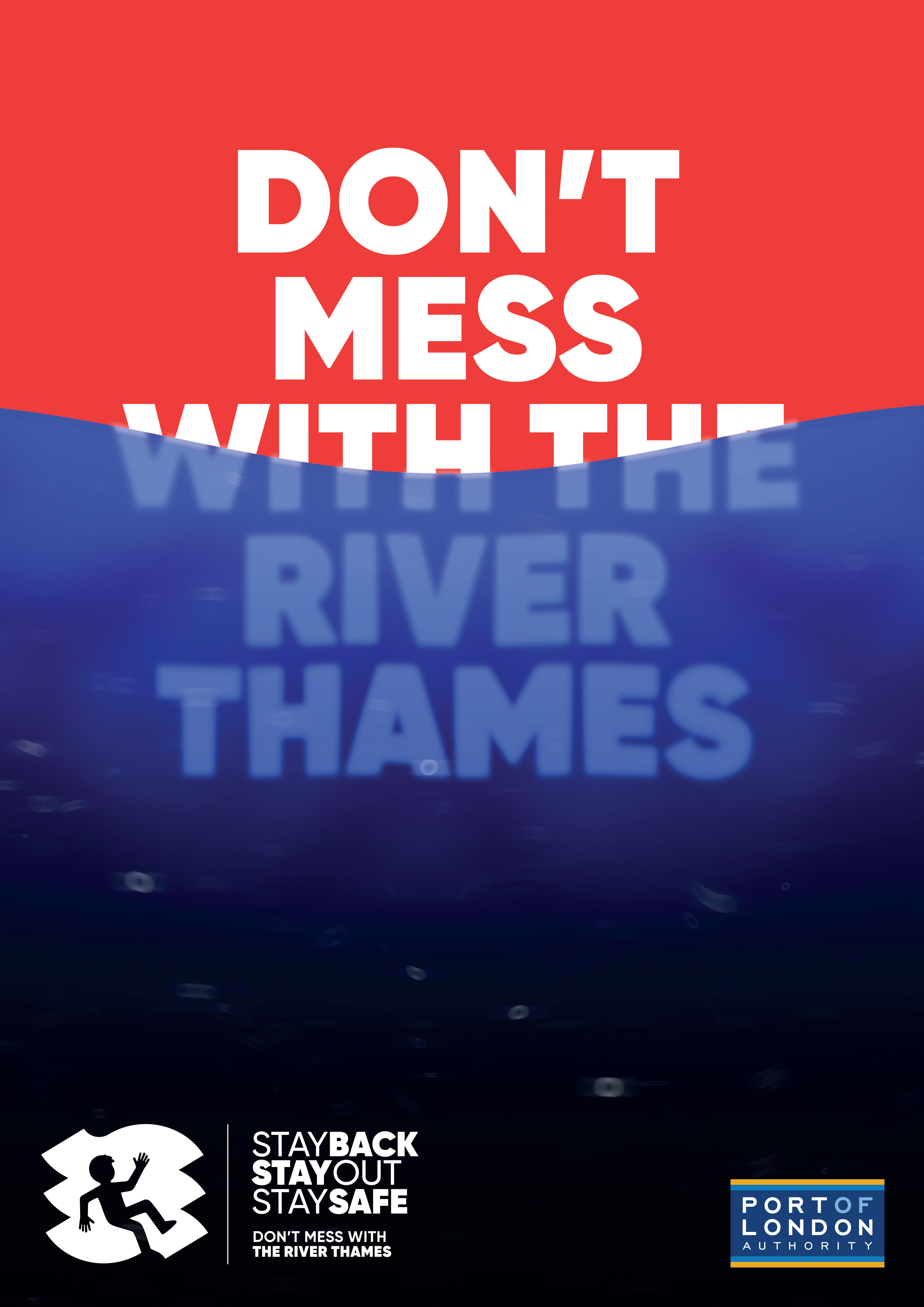
Email Banner
We’ve created an email banner to help promote the campaign both on your internal emails and externally.
Download the email Banner in English

Press releases
A press release, translated into five other languages, is available for use across relevant communication channels internally and externally.
Annual Report and Accounts 2024
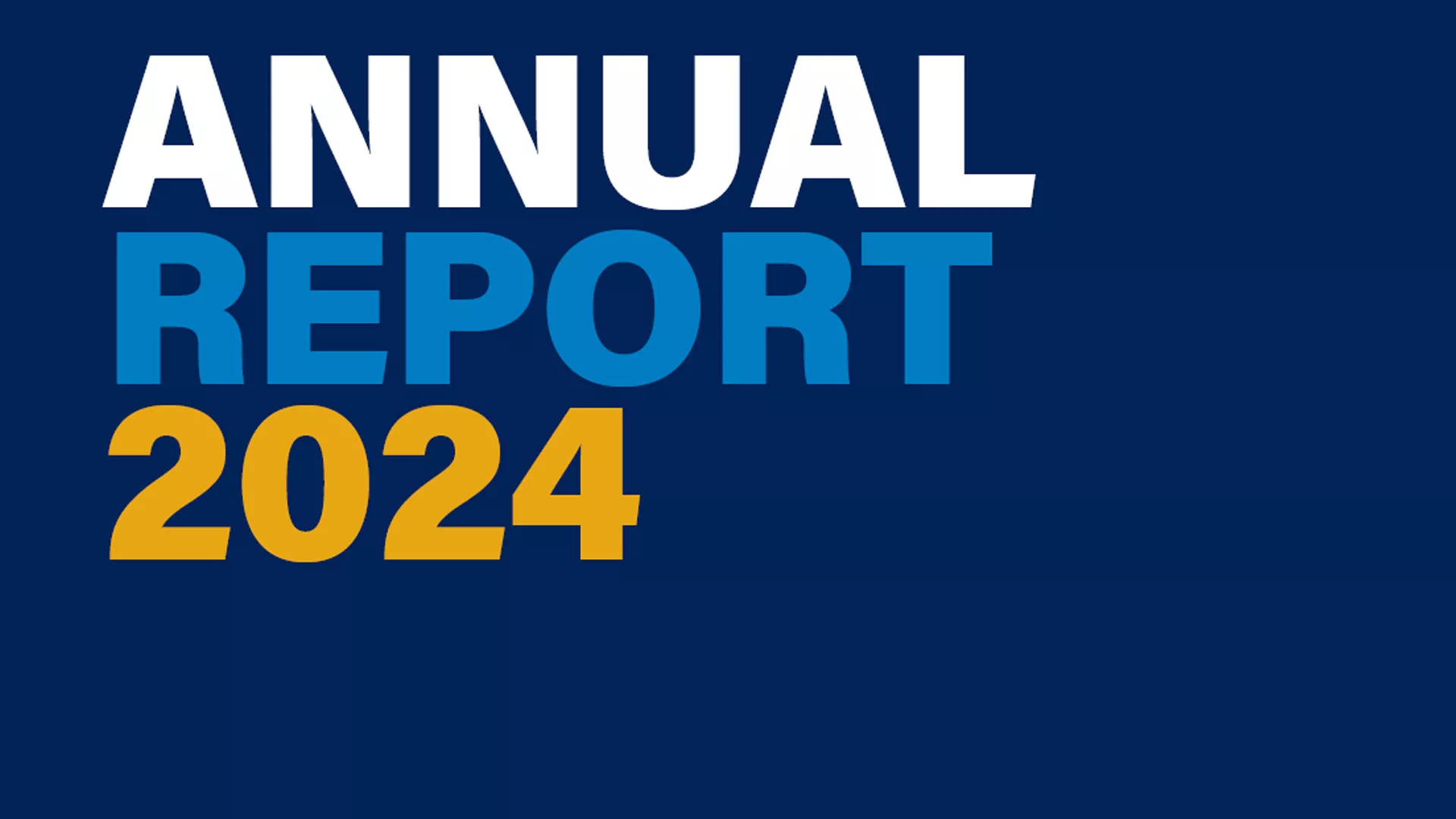
Annual Reports
- Annual Report and Accounts 2024
- Annual Report and Accounts 2023
- Annual Report and Accounts 2022
- Annual Report and Accounts 2021
- Annual Report and Accounts 2020
- Annual Report and Accounts 2019
- Annual Report and Accounts 2018
- Annual Report and Accounts 2017
- Annual Report and Accounts 2016
- Annual Report and Accounts 2015
- Annual Report and Accounts 2014
Peter Ward: Four decades of dedication to Tilbury
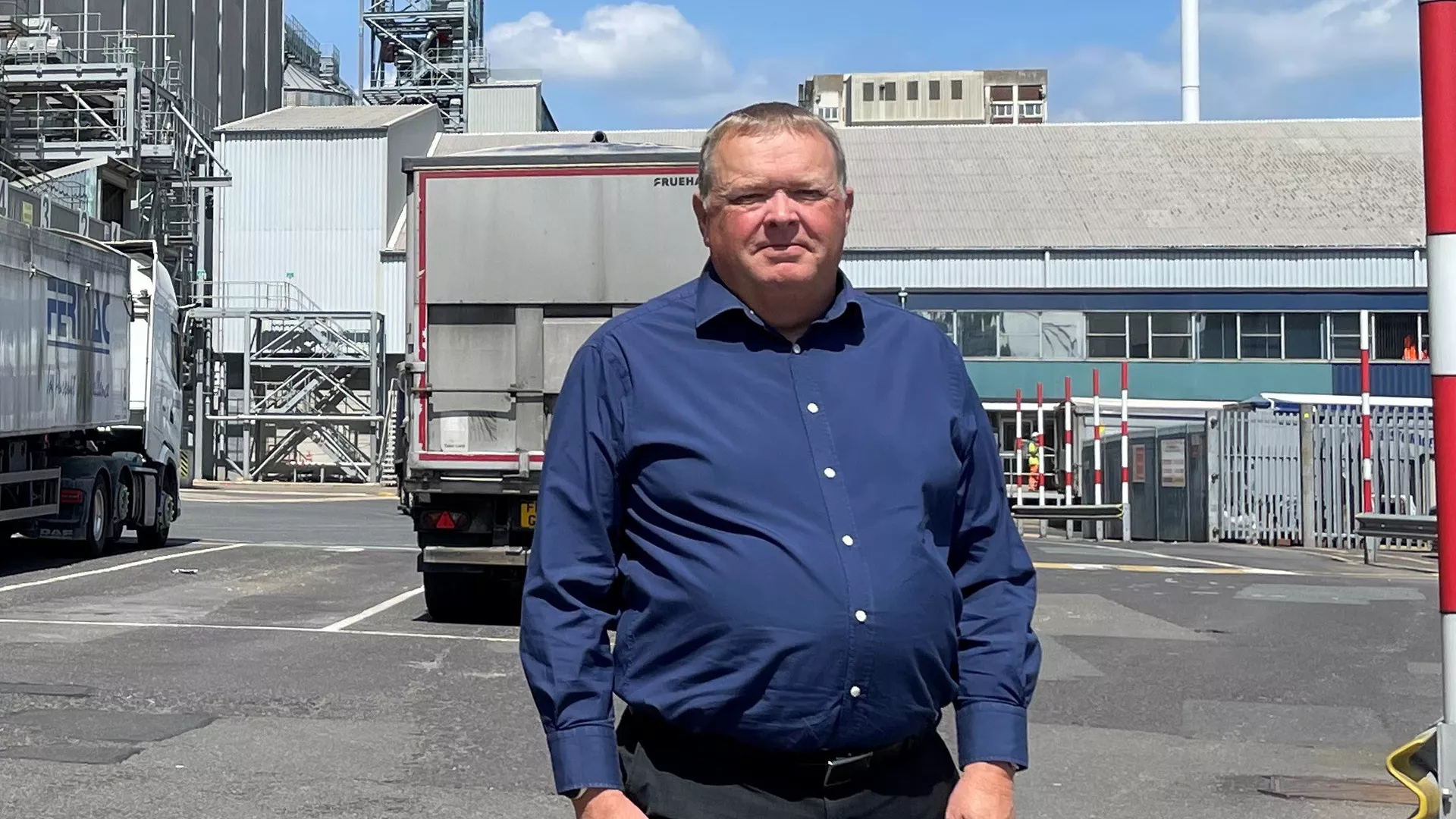
After more than 40 years working on the Thames, Peter is preparing for a well-earned retirement, and it’s hard to overstate the impact he’s had on the Port of Tilbury in that time.
He joined Forth Ports in 1998, already a seasoned operator, just as a new bulk terminal was being built. Since then, Peter has helped shape Tilbury into what it is today: a dynamic, expanding gateway, known not only for the largest grain terminal in the UK, but also for its international cruise terminal, ever-growing bulk and storage facilities and ‘waste to energy’ power station.
From his early days in operations to leading asset management and, most recently, serving eight years as Commercial Director, Peter has been at the heart of the port’s transformation. His proudest career moment? Leading the creation of Tilbury2; overseeing land acquisition, planning, and delivery of one of the UK’s most significant port developments in recent years. While paving the way for the next major port development, Tilbury3.
Peter credits early mentors like Mike Cooper, Grain Terminal Manager, and former CEO Charles Hammond OBE, and he has always believed in continuous learning; earning an MBA to support his strategic role. He’s also a strong advocate for skills development and greater diversity across the industry.
As he looks forward to retirement, Peter reflects on a very different Tilbury from the one he joined in the 1980s. Once neglected, now thriving thanks to nearly a billion pounds of investment over the past 25 years.
Peter’s contribution to that story has been immense. We thank him for his commitment, leadership, and vision, and wish him and his wife many exciting adventures ahead, from Zanzibar to Thailand, and everywhere in between.
Congratulations, Peter!
Related content


Location: London/Gravesend Remuneration: £28,971 per annum for a commitment of up to 24 days per...

Father's Day: Celebrating the PLA careers of both Dad and Daughter
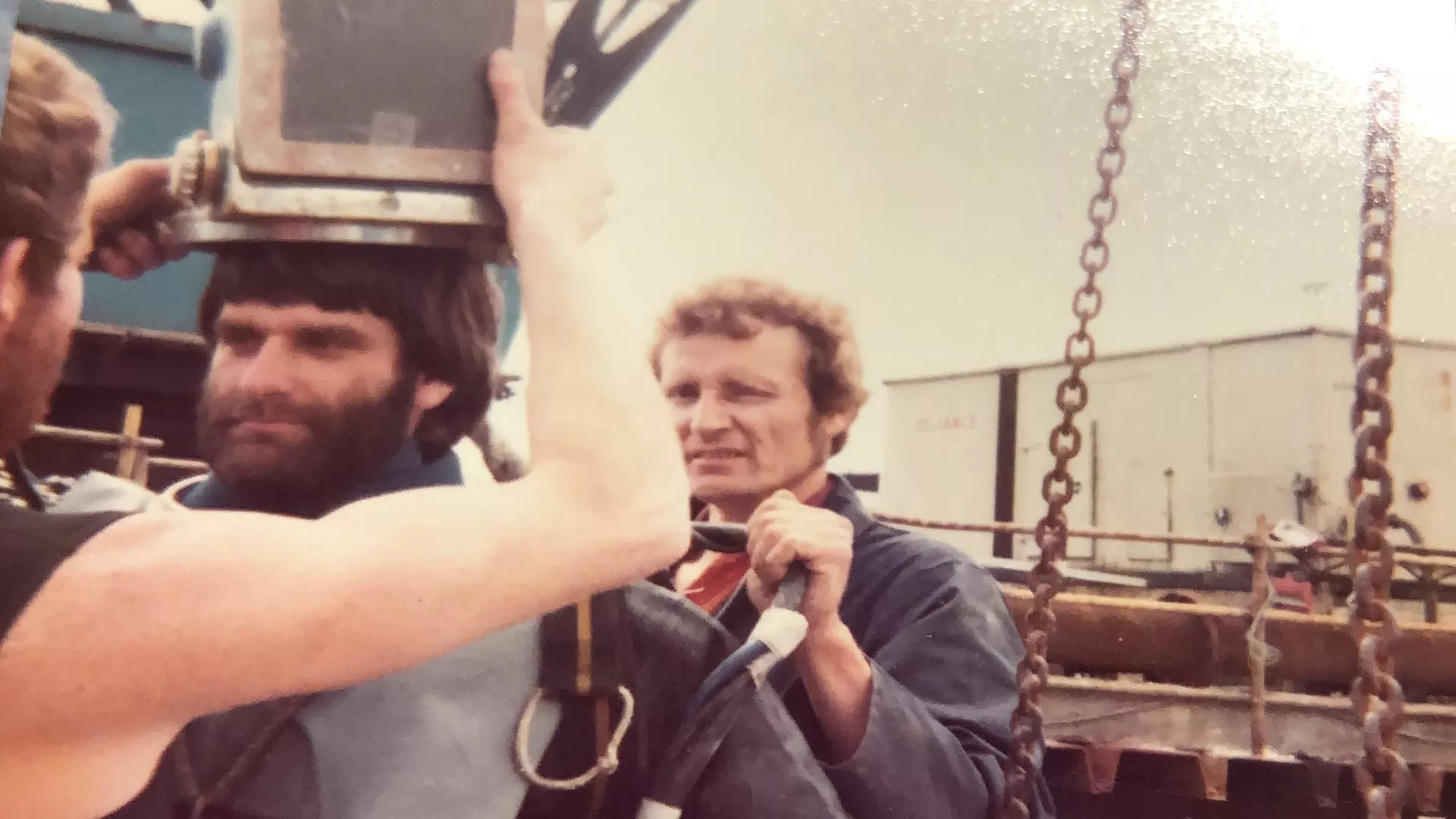
This Father's Day, we're celebrating father and daughter, Graham Negus and Emma Brown. Graham worked for the PLA for 45 years, and Emma is a VTS Officer.
We spoke with Emma about both her and her dad's careers at the PLA:
How long have you worked at the PLA?
I started in 2005, so it will be 20 years in November!
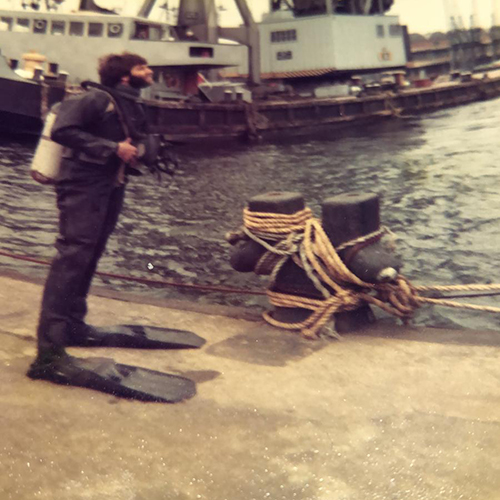 How long did your dad work at the PLA?
How long did your dad work at the PLA?
My dad worked at the PLA for 45 years before retiring in 2019. He started as a PLA Salvage Diver on salvage craft before becoming Chief Diver in a mobile team covering the whole river. He then moved into VTS where he stayed for 31 years.
Tell us about your career path.
I started dinghy sailing as a child, and I used to go on sailing holidays with my family. My dad eventually bought a yacht when I was a teenager, which he kept in Holland. In 2005 I joined the PLA as Shipping Coordinator before completing the RYA Day skipper practical and theory, as well as RYA yacht masters. I then progressed into the VTS team after doing my nautical knowledge and VTS training.
What do you remember about your dad’s job when you were growing up?
Only that he worked all the time and used to work a lot of unsociable hours. He also used to moan if I woke him up in the day after a night shift! I visited the ops room when I was little and use to enjoy looking at the screens while dad would tell me about the ships he was looking at.
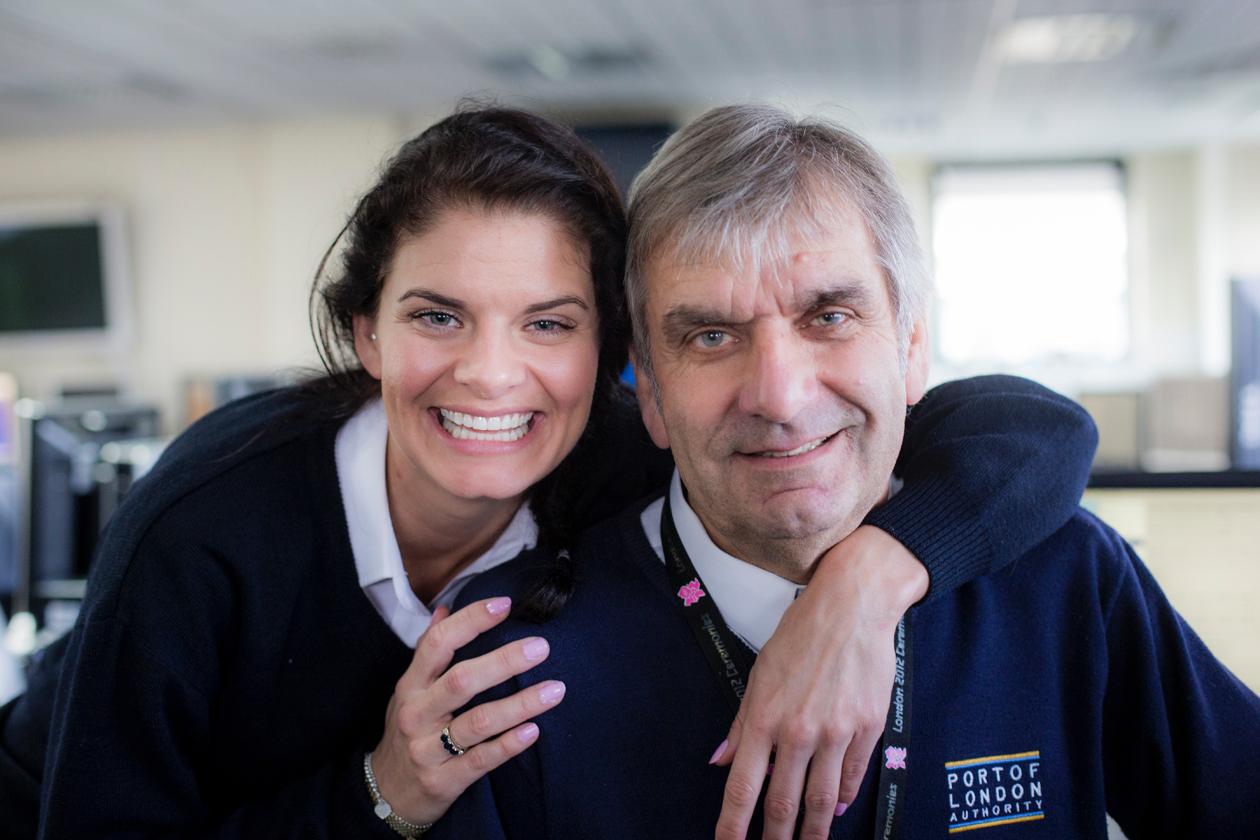
How long did you work alongside your dad in VTS?
Including the time I was Shipping Coordinator, my dad and I worked in the ops room for 14 years together, 10 of these were in VTS. We were on different watches; however, we did get to do some overtime shifts together which I always enjoyed.
How did your dad help you to succeed as a VTSO?
He helped with my knowledge of the river before starting the job and always had an answer if I needed anything. He knew the river so well. Most importantly, he made a better cup of tea than anyone else!
What’s the best part of the job?
There is no typical day/night, every shift is different.
Related content


Location: London/Gravesend Remuneration: £28,971 per annum for a commitment of up to 24 days per...

Q&A: PLA’s civil engineer and project manager Dan Johnson tells us about the Denton Berth redevelopment project
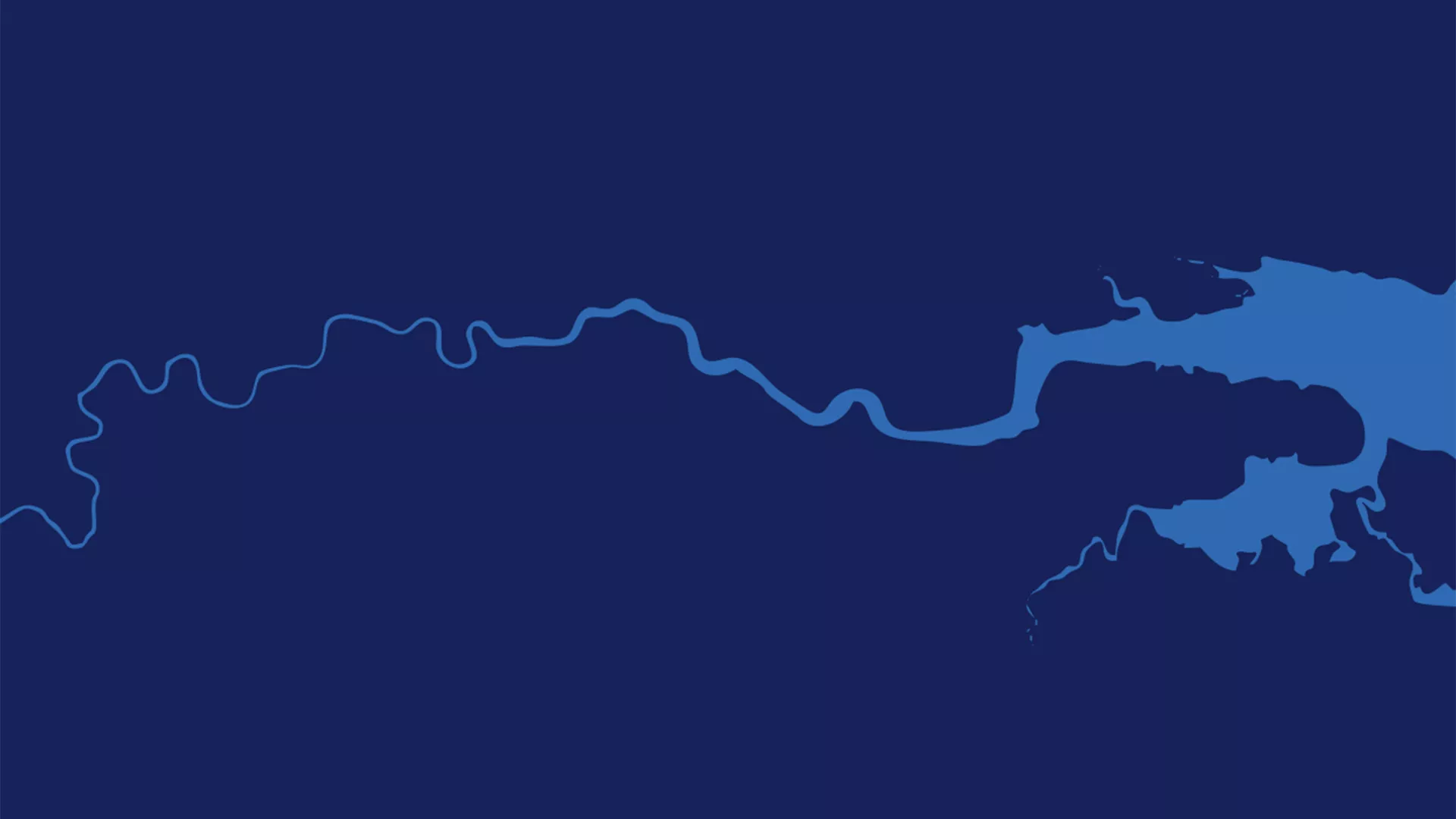
Over the next three years, we’re investing more than £40 million in new projects that will support our ambitions for increased port trade growth and our long-term goal of remaining the UK’s largest port.
To ensure that these projects remain aligned to our strategic objectives, we’re introducing a new way of managing projects in the PLA. A central part of this new approach is the introduction of the Vision12, the top 12 strategic projects within the PLA.
The Vision12 is a diverse portfolio of projects that will support our ambitions for increased port trade growth over the next 30 years as part of Thames Vision 2050.
Denton Berth Redevelopment is one of the Vision12 and to find out more about the project we spoke to Dan Johnson, the project manager and one of the PLA’s civil engineers.
Q. What does the Denton Berth project involve?
A: Our three up river pontoons at Denton; Albert, Victoria and Hope Enterprise (which has already been removed recently and temporarily replaced with CRT One Pontoon!) have all come to the end of their working life and are in dire need of replacement. This project will replace the current arrangement with three brand new 60m custom built pontoons.
Q. What will be the benefits of doing this?
A: The new pontoons will create additional berthing space for all internal PLA operations and third-party partners. Ensuring the safety of our people and river users is our priority and this new revitalised facility will ensure this going forwards. The new modern facility will also hopefully allow for easier and less maintenance by our colleagues in the future.
Q. What’s the timeline with the project?
A: We started the initial feasibility design of this project back in May 2023 and it is programmed to finish 3 years later at the back end of 2026. The vast majority of this time will be made up of the design and fabrication of the pontoons, with the actual physical work (including installation of 3 new monopiles) of replacing the old pontoons with the new ones only taking a few months. One of the main priorities of the site works is to have as little impact on our operations and nearby river users as possible. This will mean working closely with the marine contractor to carefully programme the different stages.
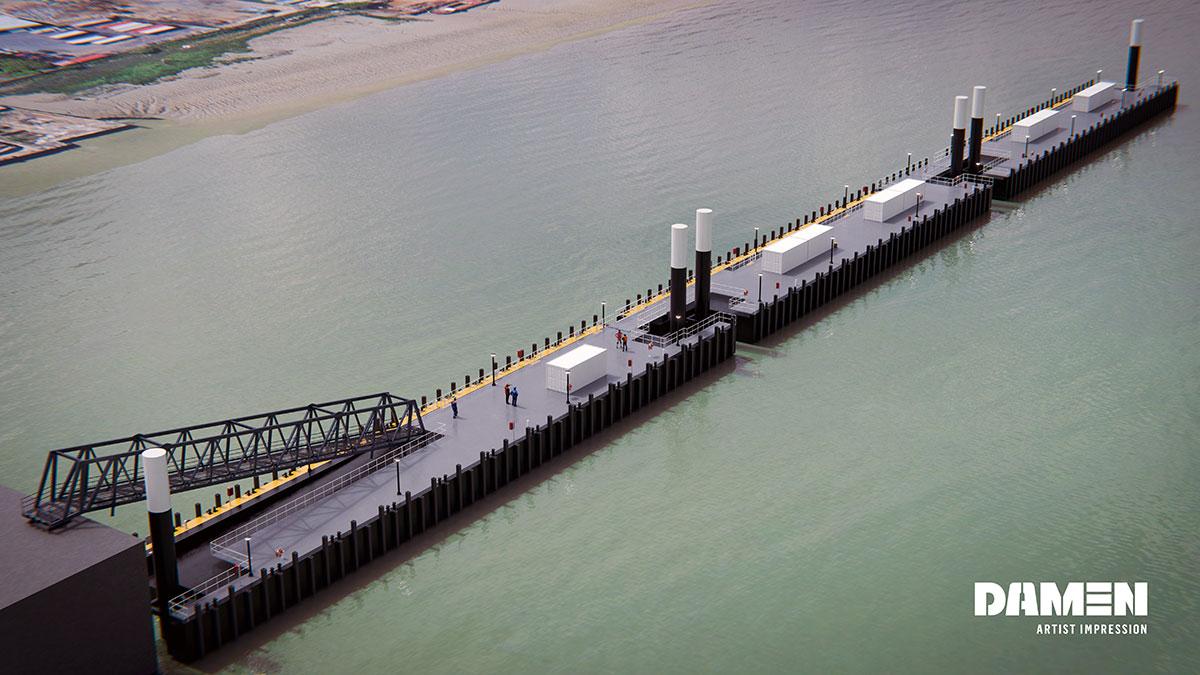
Denton Berth redevelopment project visualisation
Q. What stage are we currently at?
A: We are currently in the detailed design phase of the project, which has been a group effort from the entire project team. A special thanks to the Marine Engineering and Marine Services team for their help with the design development. The design will need to be finalised in the coming weeks as the pontoons are set begin fabrication at the start of April. Dutch shipbuilders Damen will be manufacturing these pontoons from one of their shipyards in Yichang, China. Once ready, which is due to be late 2025, the pontoons will be floated down the Yangtze River into Shanghai where they will be transported via heavy lift vessel to Rotterdam before final checks and being floated across the channel to Gravesend in May 2026. Quite a journey!
Q. What have you enjoyed about working on this project?
A: Working on a large project like this I get the opportunity to work with the wider PLA team, with the likes of Procurement, Legal, Health and Safety, Planning and Finance. I also work closely with Marine Services and Marine Engineering, who are effectively my clients for this project. I try to make sure we’re delivering it in a way that works for them at the same time as keeping things on track and to plan. Of recent I have spent a fair amount of time down at Denton talking to the guys in person and making sure they are happy with what’s going on. As a project manager you get to work with a lot of different people. I’ve also enjoyed taking on responsibility for a project of this size and while as a civil engineer I know about managing projects, I’m learning a lot about the finer details of project management, which is both useful and interesting. I’m looking forward to seeing it get completed.
Related content


Location: London/Gravesend Remuneration: £28,971 per annum for a commitment of up to 24 days per...

Discover
